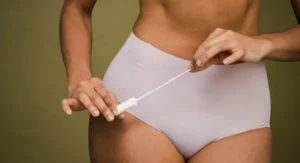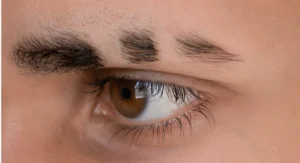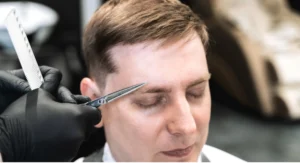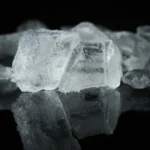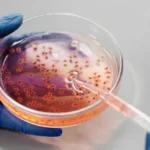Contents
Introduction
Understanding scars on lip is crucial for individuals seeking to overcome their physical and emotional effects. This article guides prevention, treatment, and emotional wellbeing wellbeing.
Even though lip scars are often hidden, they can have a profound impact on self-esteem if they’re not handled properly. We’ll explore this journey’s intricacies by first looking at the causes that lead to these visible signs of injury.
Understanding Scars on Lip
There are several causes for scarring on the lips, including injury, cold sores, or surgical procedures. Each of these conditions has its own challenges, requiring a tailored approach to be effectively managed.
Lip scars: causes and symptoms
Trauma and injuries
It is crucial to understand how to address trauma promptly to minimize its long-term effects. Accidents and injuries to the lips can leave visible scars.
Cold Sores and Herpes
Cold sores and genital herpes are viruses that can leave lasting scars if not treated properly. Those prone to recurrent outbreaks of these infections want to explore preventative measures and early treatment options.
Surgical Scars
The surgery of the lips can enhance your aesthetics, but it may also leave scars behind. By choosing a skilled surgeon and taking good post-operative care, you can greatly reduce the visibility of the surgical scars.
Types of Lip Scars
The different types of scars present in the lip can be categorized into hypertrophic scars, atrophic scars, and keloid scars, and it is important to recognize the type of scar you have to receive the best treatment.
Hypertrophic scars
It is common to treat hypertrophic scars on the lips with topical treatments and laser therapy, which are common approaches to treating hypertrophic scars caused by collagen overproduction during healing.
Atrophic scars
Atrophic scars are characterized by loss of tissues, which results in depression. It may be possible to treat atrophic lip scars by combining surgical procedures and dermal fillers.
Keloid scars
It is worth noting that the lips’ keloid scars often extend beyond the initial injury site, causing discomfort. Surgical removal and injections with corticosteroids are potential treatments for keloid scars on the lips.
Prevention of lip scars
Several preventative measures can be taken to prevent scarring on the lips, including wound care and sun protection. Let us take a deeper look at these measures in detail.
Proper wound care
The timely cleaning, disinfection, and wound protection of wounds plays a pivotal role in preventing scars. Following a structured wound care routine will ensure that permanent scarring can be minimized.
Sun protection
A high-SPF sunscreen will provide additional protection during the healing process and reduce the visibility of scars. Applying sunscreen to the lips can provide extra protection during the healing process.
Treatment options
When prevention is not enough, various treatment options can be used to minimize lip scarring. Being aware of these treatment options allows individuals to make informed choices.
Topical creams and gels
Some topical treatments contain silicone and onion extracts that can reduce the visibility of scars. Regular application and patience are key elements to achieving positive results.
Laser therapy
Laser therapy involves targeting scar tissue so collagen remodelling can occur, which may lead to temporary redness. Still, its long-term benefits make it a popular approach for treating scars.
Surgical procedures
It may be necessary to undergo surgical intervention to eliminate or reduce severe or persistent lip scarring. Scar revision surgery is one technique used to improve the lips’ aesthetic and functional aspects.
Home Remedies
Home remedies can contribute to the scar management process as complementary to medical interventions. These accessible options will provide additional support to the scar recovery process.
Aloe Vera Gel
There is no doubt that aloe vera gel has soothing properties. It can help to relieve discomfort and to help scars heal. If applied to the affected area, a thin layer can help reduce inflammation.
Coconut oil
Its antioxidant and moisturizing properties make coconut oil perfect for nourishing the skin and reducing scars. Applying coconut oil regularly as part of a skincare routine promotes the health of the lips.
Vitamin E Application
You can apply vitamin E oil or capsules directly to the scar to heal the tissue. However, it is important to consult a healthcare professional before using vitamin E as a scar care regimen.
Dealing with the Emotional Impact
In addition to the physical aspect of lip scars, they can also affect a person’s emotional wellbeing, which can help boost self-esteem and seek professional assistance when needed.
Boosting Self-Esteem
A person with lip scars should be encouraged to embrace unique features and take pride in their appearance. Positive self-talk and focusing on personal strengths will empower an individual with lip scars.

Seeking professional support
There may be a time in the future when the emotional toll becomes overwhelming, and in such a case, seeking support from mental health professionals or support groups can provide a safe space for expressing concerns and receiving guidance.
Conclusion
Embracing and managing scars on the lips is an emotional journey involving prevention measures, treatment, and a healthy emotional state to succeed. Individuals can navigate this unique aspect of their personal story with confidence and ease by understanding the intricacies of lip scars and exploring effective solutions to them.
Frequently Asked Questions (FAQ’s)
Are lip scars permanent?
Lip scars can be permanent, but effective treatment options exist to minimize their visibility. Early intervention and consistent scar care routines contribute to positive outcomes.
Can lip scars be treated at home?
While some scars respond well to home remedies, professional advice is crucial for comprehensive scar management. Home remedies can complement medical interventions but may only partially replace them.
How do you prevent scars after lip surgery?
Following post-operative care instructions, including wound protection and avoiding sun exposure, is essential in preventing excessive scarring after lip surgery.
Is laser therapy painful for lip scars?
Laser therapy may cause temporary discomfort, but pain is generally well tolerated. Topical anaesthetics may be applied to minimize discomfort during the procedure.
Are there any natural remedies for lip scars?
Natural remedies like aloe vera, coconut oil, and vitamin E can help manage scars. However, individual responses vary, and consulting with a healthcare professional is advised.
Can makeup cover lip scars effectively?
Quality makeup products can conceal lip scars temporarily. However, a consistent scar care routine remains crucial for long-term improvement.
Recommended Articles
- Understanding Diabetic Fecal Odor: What Does Diabetic Poop Smell Like?
- Nylon Underwear Vs Cotton: Which Is Best For You?
- The Ultimate Guide To Hair Wrap For Sleeping – Transform Your Nights
- What Should You Do When Your Ear Fluttering?
- Unveiling Eyebrow Slits Attraction: A Comprehensive Guide
- The Evergreen Trend: Eyebrow Slit Men Styles


